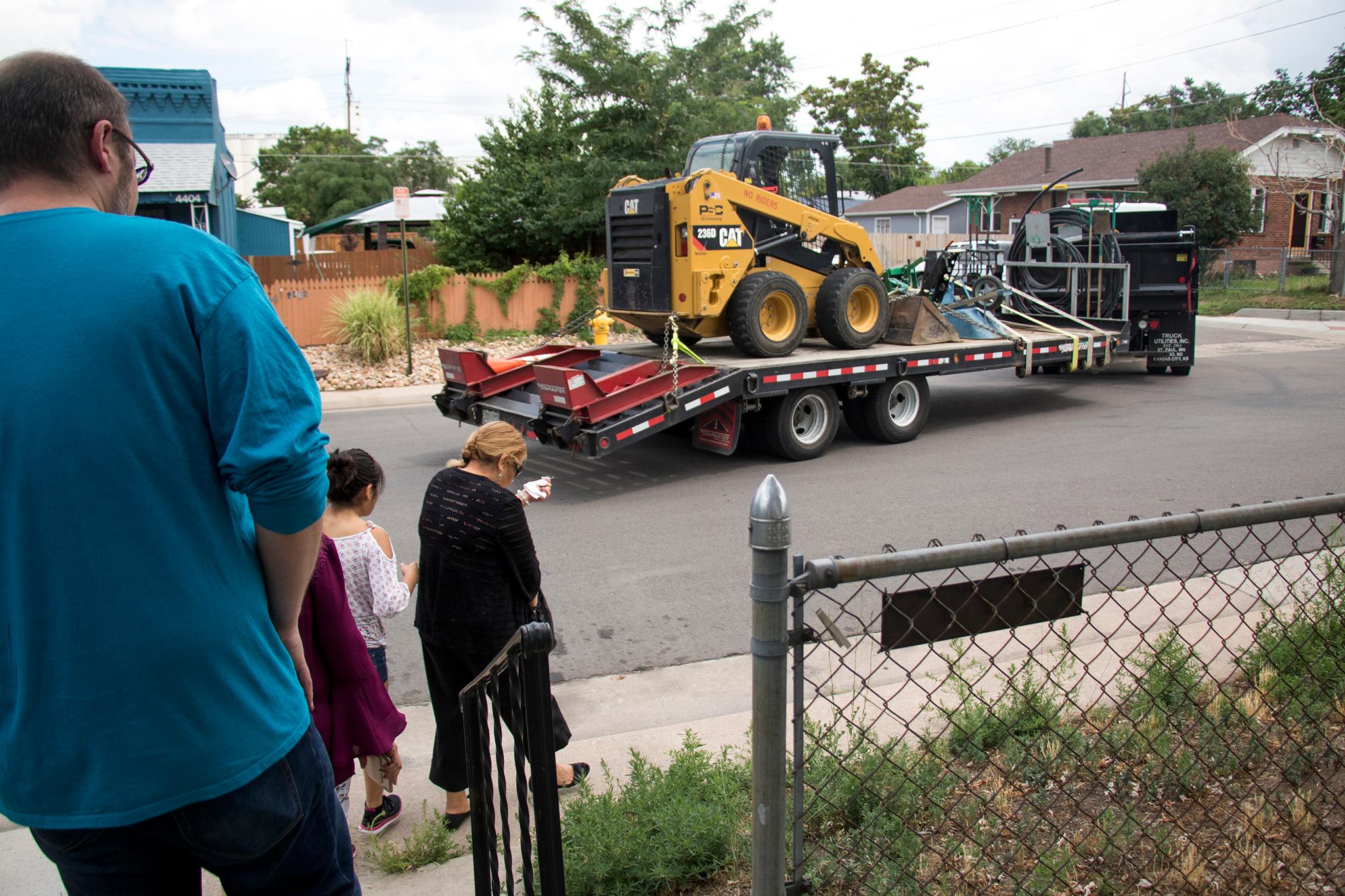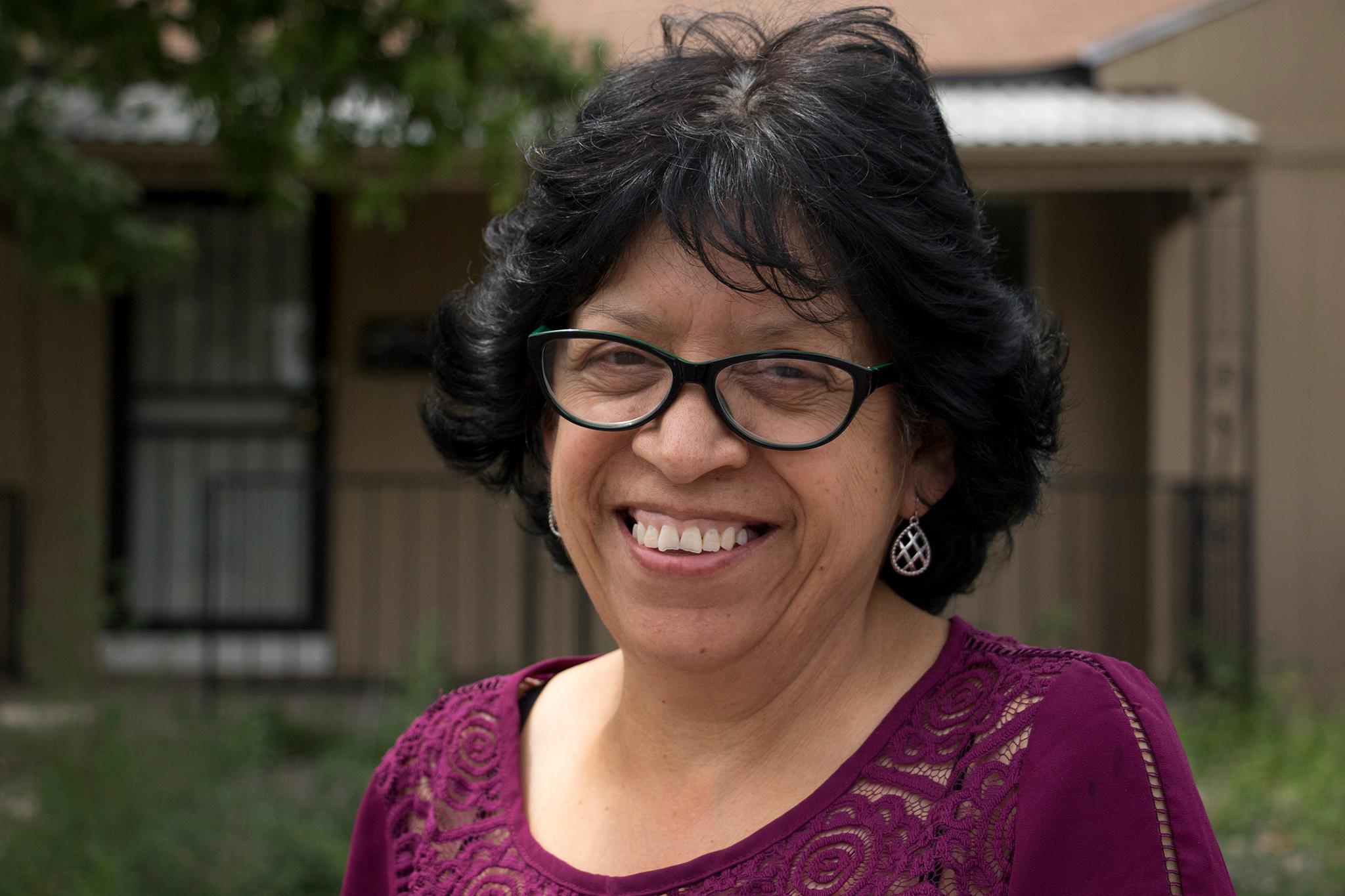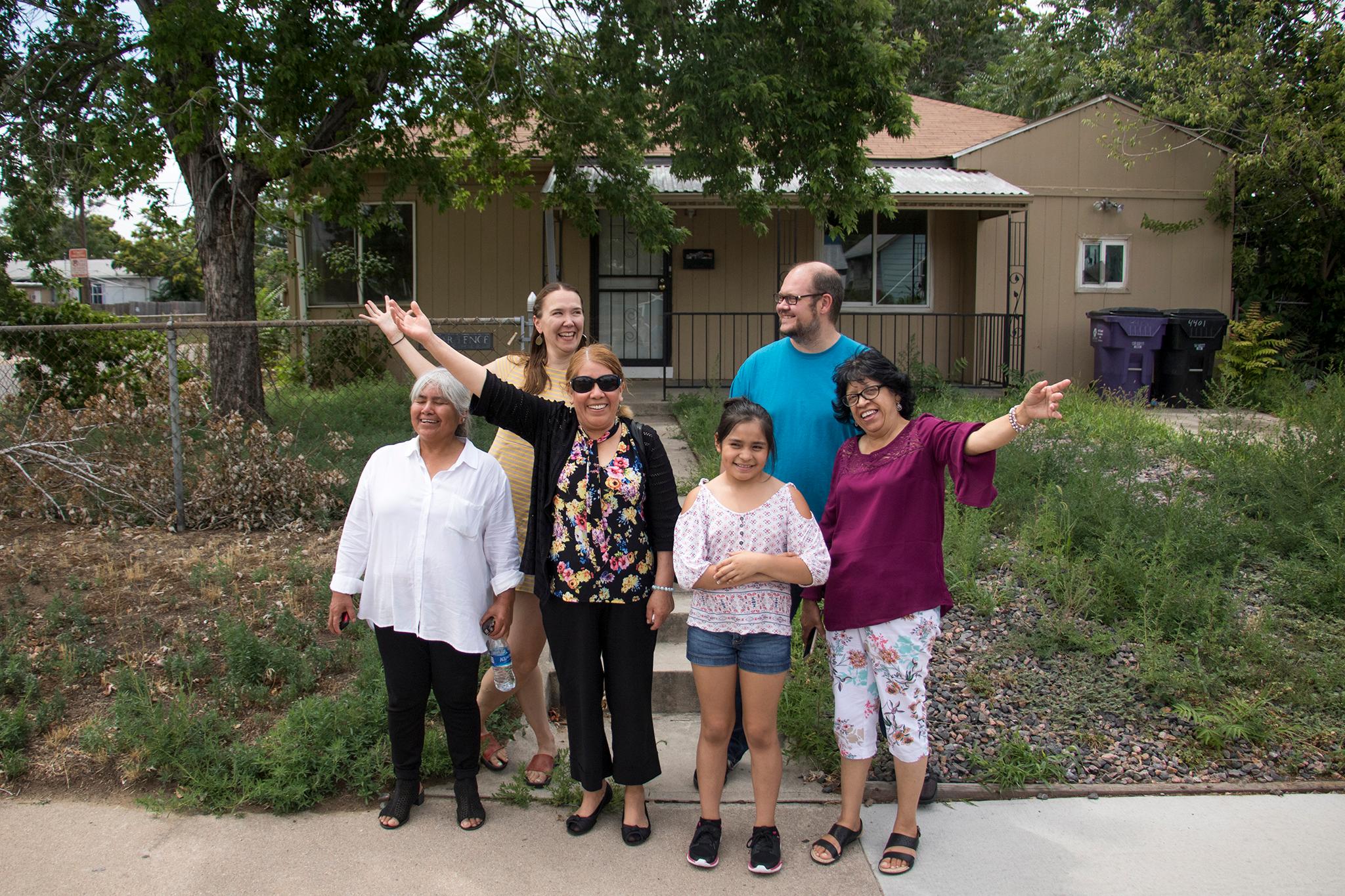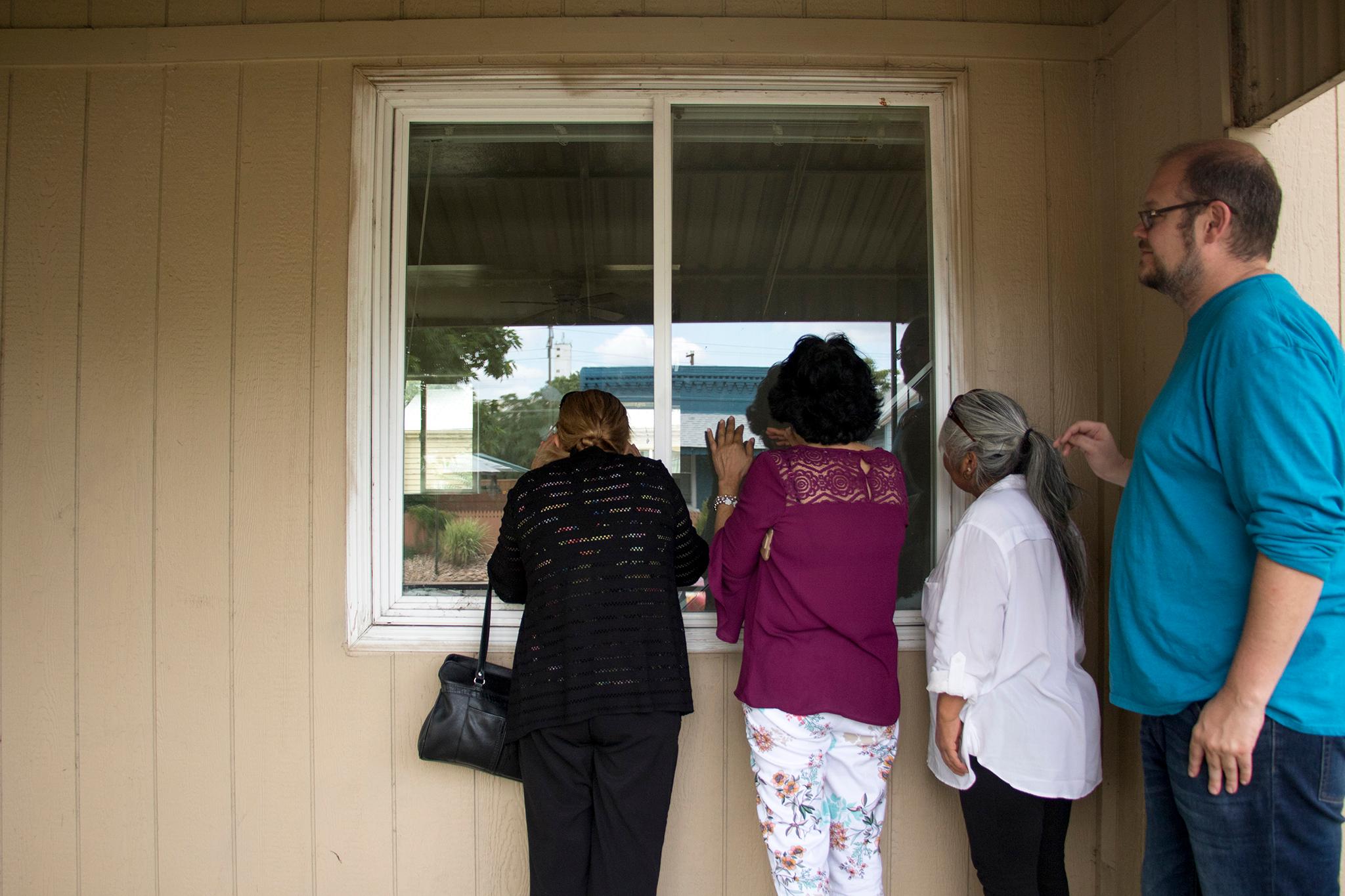One of north Denver's major community groups has secured $2 million in funding from CDOT to launch a new affordable housing program, according to its leaders.
"I've never seen a local group that's led by residents attract this kind of funding," said Nola Miguel, director of the Globeville, Elyria-Swansea Coalition, who has worked in the area for 14 years now.
Her group, along with several partners, secured the money after years of negotiation and planning. CDOT offered up the money through a competitive process as a way to make up for the demolition of some 50-plus homes. GES Coalition will join with Brothers Redevelopment and the Colorado Community Land Trust to form the Globeville, Elyria-Swansea Affordable Housing Collaborative.
The money will be used in a "community land trust" model. The partnership already has purchased three homes in the area. One will be rehabilitated, while two others will be demolished and rebuilt as duplexes, and there are plans for more.
Once that's done, the homes will be sold to lower-income people, while the land itself will be owned by the trust. The goal is to sell homes for about $150,000 each, which is about half the market value, Miguel said. Homeowners will be limited in how much they can sell the properties for.
The idea, she said, is to create a stock of permanently lower-cost homes that also can be stepping stones toward other houses.
This is part of a long-running Denver story.
Maria Elena De Luna Jiménez lived in Globeville for 30 years. She spent that time in the shadow of the Interstate 70 viaduct, the highway that has come to symbolize how Denver's development harmed the health and well-being of poor and Latino neighborhoods.
Slowly, she learned stories of north Denver before the highway. In the early '60s, she heard, the area was muy bonita. One elderly man told her that he used to walk with his pregnant wife through the pleasant residential blocks -- until they started to disappear.
"He said that, one day, he was walking, and he saw that all the houses were becoming vacant, and that they started demolishing them. Nobody told him. Nobody notified them," she said, speaking through a translator.
What the man saw was the preparation in the 1960s for the construction of the highway. And the story resonated when she heard it several years ago
"I'm thinking, now they want to do the same thing," Jiménez said.
She is one of scores of residents who have rallied in recent years against the Colorado Department of Transportation's efforts to rebuild and expand I-70 in north Denver, a project that will require the demolition of dozens more homes. Like many others, Jiménez hoped to convince the state to route the highway out of the neighborhood -- an option that CDOT said wasn't feasible.
They seem to have failed. CDOT already has begun demolition, and it's preparing for full-scale work on the multi-billion-dollar project, including a controversial plan to work at night. The project also includes a new 4-acre park to cover part of the new highway trench.

But with the new money, she sees a chance to start something new.
Community leaders say today's news is a victory, but that they'll need more money.
The majority of the money left over after the initial purchases will be used to buy and rehabilitate homes for the land trust; initiate new development; and rehabilitate homes for low-income owners.
"For us, this money, this $2 million -- it's a good quantity, but it's not going to remedy everything the community needs," Jiménez said.
"It gives us the opportunity to start with the land bank, and do something we have been struggling with as a community ... But we still need more. We still need more."

Residents of north Denver have been organizing behind the idea for years, including a major push last year. "United, we become stronger," said Mercedes Gonzales, a member of the coalition, speaking through a translator.
She and other community members said that the impending project, along with rising property values, already have driven friends and family out of the neighborhood, to places like Commerce City or Denver's northeastern suburbia.
Modesta Barrales Ortega said that her son's family had moved several times over the past year, disrupting his children's education. And we reported earlier on the changes in Elyria-Swansea as the National Western Center is rebuilt in another major project.
"We want to help the families that are more in danger of being relocated, so they can have a place to live, in a stable place to live in good conditions -- because, in reality, the houses that are here that they're renting, the rent is high and they're in bad condition," Jiminéz said.
CDOT also is working with the city to make improvements to about 250 homes near the property, including ways to reduce noise and dust and improve energy efficiency, including through new air conditioners, windows, caulking and more.

Organizers are hoping to ultimately have a much larger impact.
CDOT is not required to provide the money -- only to pay the expenses of the people that were directly affected. The announcement today is the result of years of campaigning, a symbol for a community that has mobilized over the last 20 years around concerns about their environment and their health.
"They weren't legally obligated to do so. They did it. That's amazing," said organizer Robin Reichhardt, a Swansea resident who works with the coalition. But he said that the sum fell far short of the city of Denver's own recommendation.
A city report suggested that the state agency invest $14.5 million to make up for lost homes and other side effects. But CDOT decided that the $2 million sum was a "fair and appropriate" amount to kick-start other efforts, as spokesperson Rebecca White told us earlier.
Now, organizers are looking for more money so they can ramp up to serve hundreds of homes. Robin Reichhardt, a Swansea resident who works with the coalition, said that it's time for the city government to step up.
"What's more frustrating is that the city hasn't made any commitments to this project," he said, saying that it was growing frustrating to hear Mayor Michael Hancock pledge to fight gentrification without delivering direct funding. More broadly, Hancock has proposed a plan to double Denver's spending on affordable housing. But Reichhardt said that the administration should put its money behind community-led efforts like the GES effort, too.
A spokesperson for Hancock said the administration wants to play an "active role in furthering land trust strategies."
“The city congratulates GES for the recent $2 million commitment and thanks CDOT for their support of our community," wrote Amber Miller. " ... To that end, we are in an active procurement process per city purchasing rules. We have received multiple responses and are working appropriately with each applicant during this due diligence review period.”
The administration already is in conversation with the GES group.
Zulma Garcia of the Community Language Cooperative provided translation services for this article. Her services were provided to Denverite through the GES Coalition.












